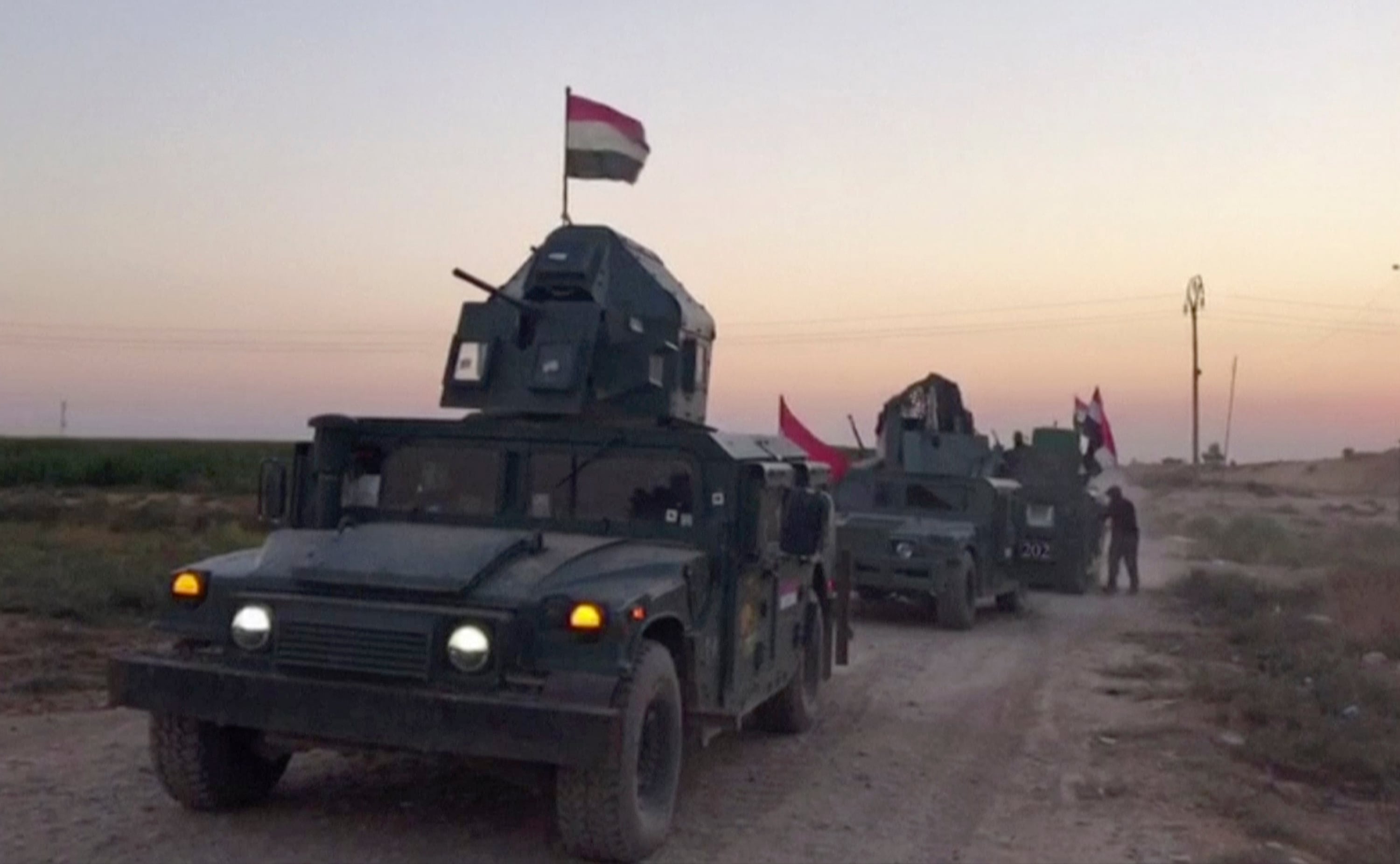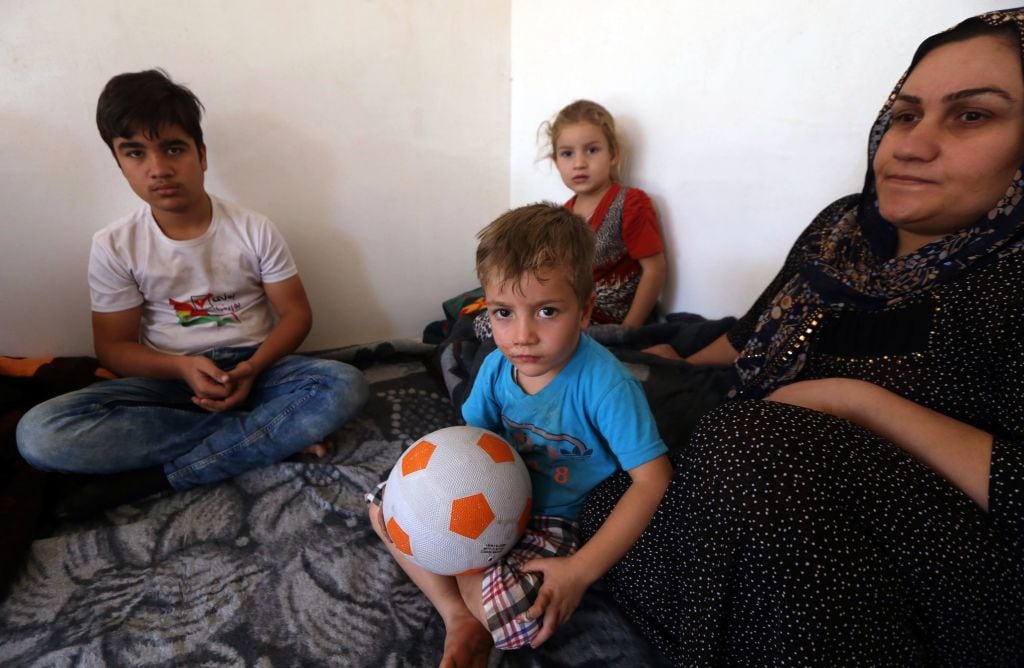KIRKUK, Iraq — Kurdish forces pulled out of disputed areas across northern and eastern Iraq on Tuesday, a day after handing the northern city of Kirkuk over to federal forces amid a tense standoff following last month’s vote for independence.
The Kurdish forces, known as peshmerga, withdrew from Sinjar as well as three towns on the border with Iran, allowing Iraqi government forces and state-sanctioned militias to assume control.
The vastly outnumbered Kurdish forces appear to have bowed to demands from the central government that they hand over the so-called disputed territories outside the Kurds’ autonomous region, including areas seized from the Islamic State group in recent years.
Iraqi forces were massed in the north after driving ISIS from Hawija, one of its last strongholds in the country. The U.S. is closely allied with both the Iraqi military and Kurdish forces, and had urged them to avoid further escalation.
The Kurds had included the disputed areas in a non-binding referendum last month in which more than 90 percent of voters favored independence. The Iraqi government, as well as Turkey and Iran, which border the land-locked Kurdish region, rejected the vote.
Masloum Shingali, commander of a local Yazidi militia in Sinjar, said the peshmerga left before dawn Tuesday, allowing the state-sanctioned militias, known as the Popular Mobilization Forces, to move in.
Islamic State militants massacred Yazidis after seizing Sinjar in 2014. More than 2,000 men were killed, and thousands of women and children were taken into slavery. Kurdish forces, supported by U.S. airstrikes, liberated the town in 2015.
Mahma Khalil, the mayor, said the Popular Mobilization Forces, a coalition of mostly Shiite Arab militias, were securing Sinjar. The Iran-backed militias are recognized by Iraq’s government as a part of its armed forces but are viewed with deep suspicion by the Kurds, who see them as an instrument of Tehran.
The Kurdish forces “left immediately, they didn’t want to fight,” Shingali said.
Iraq’s Interior Ministry said the peshmerga also pulled out of the eastern towns of Jaloula, Khanaqin and Mandali.
Meanwhile, thousands of civilians were seen streaming back to Kirkuk, driving along a main highway to the city’s east. The Kurdish forces had built an earthen berm along the highway, reinforced by armored vehicles, but were allowing civilians to return to the city. Many returned with their children, in cars packed with their belongings.
RELATED

“Kirkuk was sold out, everyone ran away. But now the situation has stabilized, and people are returning to their homes. Nothing will happen, God willing, and Kirkuk will return to how it was,” said Amir Aydn, 28, who was heading back to the city.
The Kurds have long coveted Kirkuk, a multi-ethnic city of some 1 million Kurds, Arabs, Turkmen and Christians that is in the heart of a major oil-producing region. They assumed control of the city in 2014, as Islamic State militants stormed across northern Iraq and the country’s armed forces disintegrated.

Baghdad has spent the last three years demanding the Kurds return the city to federal control, and appeared to be on the verge of taking military action after the referendum.
Sporadic clashes broke out as Iraqi forces moved toward Kirkuk early Monday, but within hours Kurdish forces had withdrawn from the city’s airport, an important military base and nearby oil fields, with hardly a fight. Long lines of military vehicles could later be seen streaming back to the Kurds’ autonomous region to the north.
Associated Press writer Philip Issa in Baghdad contributed to this report.




